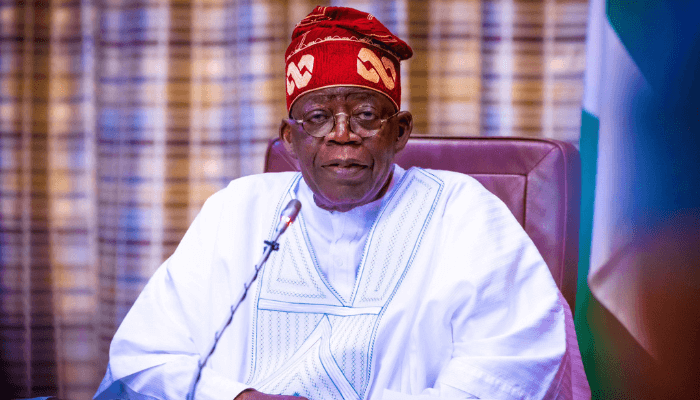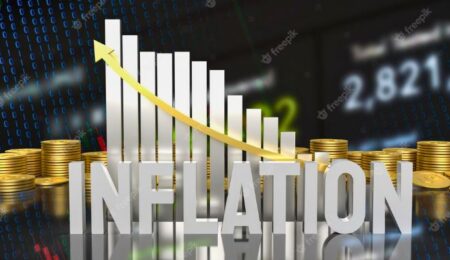Foreign Direct Investment (FDI) inflows into Nigeria turned negative last year for the first time in at least 33 years, according to new data from a United Nations agency, representing one of the major challenges inherited by President Bola Tinubu.
Tinubu, who took the helm of Africa’s biggest economy just over a month ago, has stoked foreign investors’ interest with some of his actions including the removal of petrol subsidy and the start of foreign exchange reforms.
He has hosted several major companies including Airtel, ExxonMobil, Shell Petroleum Development Company and Bank of America as part of efforts to drive up investments in the country.
The latest 2023 World Investment Report by United Nations Conferences on Trade and Development (UNCTAD) showed that Nigeria’s FDI flows came in at -$187 million in 2022, compared to $3.31 billion in 2021.
Egypt saw the biggest FDI inflow in Africa at $11.5 billion. It was followed by South Africa ($9.05 billion), Ethiopia ($3.67 billion), Senegal ($2.59 billion), and Morocco ($2.14 billion).
“In West Africa, Nigeria saw inflows turn negative, to -$187 million, due to equity divestments. However, the value of announced greenfield projects increased by 24 percent,” it said.
Astrit Sulstarova, chief of data and trends section at UNCTAD, said in an email to BusinessDay that negative numbers of FDI inflows may indicate divestment in assets or discharges of liabilities
“In the case of equity, the direct investor may sell all or part of the equity held in the direct investment enterprise to a third party; or the direct investment enterprise may buy back its shares from the direct investor thereby reducing or eliminating its associated liability,” he said.
Abiodun Keripe, managing director at Afrinvest Consulting Limited, attributed weak flows into Nigeria to unorthodox and cloudy monetary policies, existence of multiple exchange rate systems, weak fiscal policy framework, insecurity and difficulty in capital repatriation.
“Combined with the aforementioned, flows in 2022 were worsened by aggressive global monetary tightening and the uncertainties around the 2023 domestic elections,” he said.
He added that the ultimate implication for Nigeria is that weak capital mobilisation capacity can have a negative effect on growth, and derail the economy from its potential.
Generally, divestment signals pessimism about a country’s investment and business environment, according to Israel Odubola, a Lagos-based research economist.
“For Nigeria, I think the divestments occurred in the oil and gas sector. And I feel it reflects investor’s pessimism about the prospects of the sector,” he said.
The investment report also revealed that apart from Nigeria, four other African countries, namely Angola, Eritrea, Lesotho and Togo, recorded negative FDI, at -$6.14 billion, -$32 million, -$8 million and -$227 million respectively.
Read also: CBN’s unsettled FX backlog puts investors on hold
FDI flows into the continent declined to $45 billion in 2022 from the record $80 billion set in 2021. It accounted for 3.5 percent of the global FDI.
In April, the National Bureau of Statistics reported that FDI into Nigeria fell by 33 percent to $468.91 million 2022, the lowest in at least nine years.
The International Monetary Fund cited central bank intervention in Nigeria’s foreign-exchange market as a hindrance to capital inflows.
The naira depreciated by 57 percent against the dollar in the official market during the eight-year tenure of President Muhammad Buhari, who handed over to Tinubu on May 29.
Muda Yusuf, chief executive officer of Centre for the Promotion of Private Enterprise, said the negative FDI was not surprising since the flow of investments into the country declined significantly because of the foreign exchange policy.
The reforms being implemented by the Tinubu government are expected to lure in investors back into the country.
“The recent steps at implementing critical reforms including the collapsing of the different exchange rate windows into the I&E window and adoption of ‘willing buyer and willing seller’ model are part of the positive steps to reversing the negative FDI trends,” Keripe of Afrinvest said.
According to Yusuf of CPPE, the Tinubu-led administration is already charting a new and positive course for the economy which portends bright prospects for recovery and growth.
“On the outlook for the second half of 2023, there are clear indications of elevated investors’ confidence, improvement in the government fiscal space, higher prospects of exchange rate stability in the near term, and positive expectations of better economic governance, ” he added.
Analysts at London-based Capital Economics said risk premia have fallen in Nigeria and some other African countries over the past month.
“In the region’s largest economy, Nigeria, that has come on the back of a marked policy shift since President Tinubu took office in late-May. Costly fuel subsidies have been removed and the naira has been devalued,” they said in a note.
“We are sceptical that this represents a full U-turn from ‘Buharinomics’ but, if the policy shift sticks, the balance of payments will be placed on a more sustainable footing,” they said. “Admittedly, there will be little boost to exports, as these are mainly oil, and imports may rise if FX restrictions are scaled back. But foreign investment should recover. The fall in risk premia suggests this may already be happening.”






